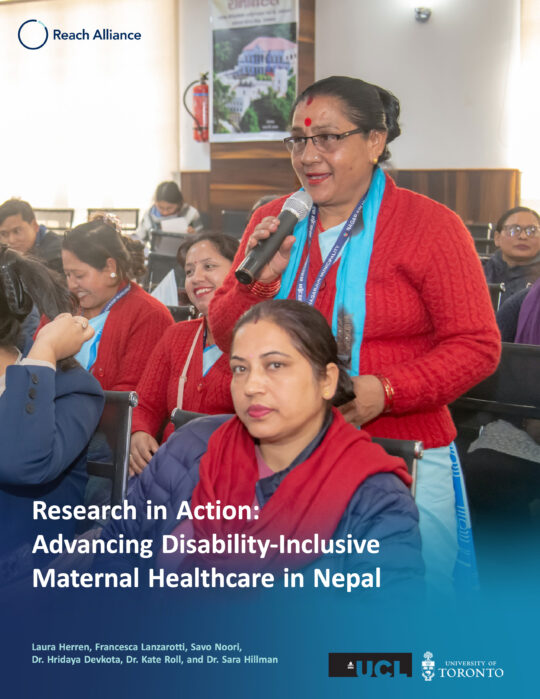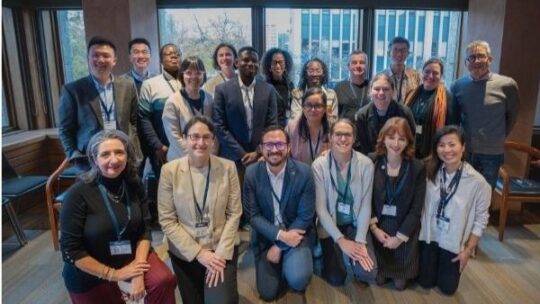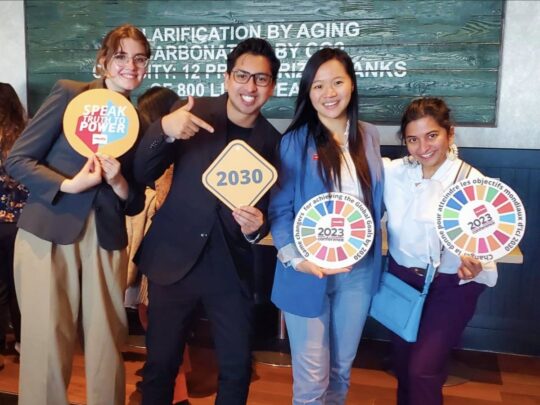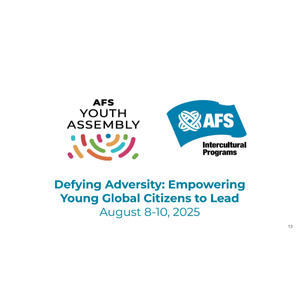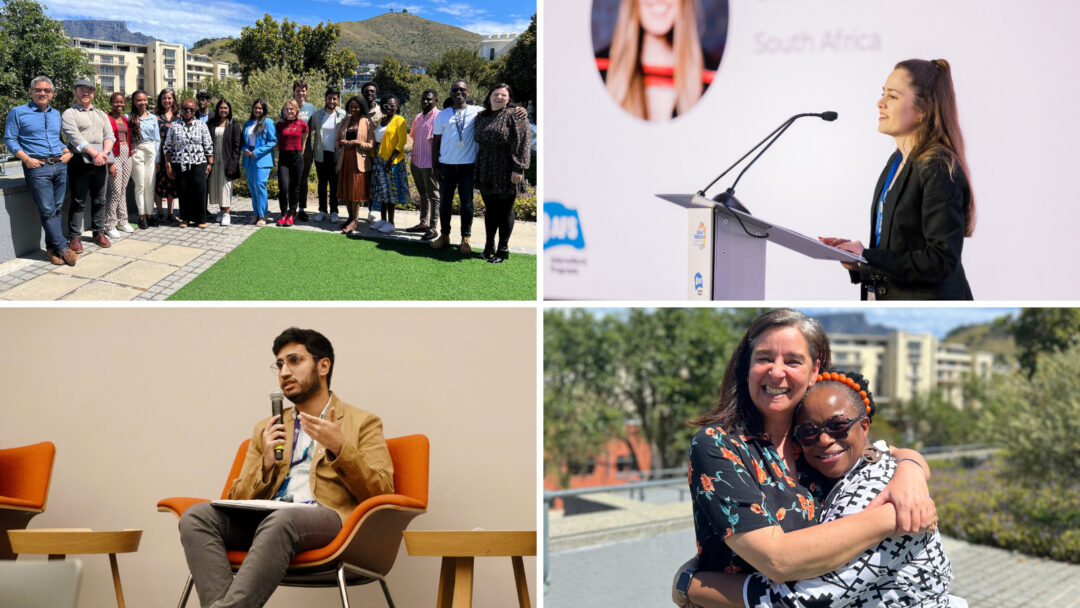
Bottom Row: Reach researcher Waheed Amanjee (left), Reach mentors Dr. Solange Rosa and Dr. Tracey Naledi (right)
Over the last two years, the University of Cape Town (UCT) has contributed to the Reach Alliance’s mission of embracing higher education’s role in promoting sustainable development. With UCT joining the global Reach network in 2022, its research adds to the over 80 Reach case study reports launched since 2015, and contributes critical localized research insights that have informed practitioners and policymakers around the world. In addition to these important empirical contributions, UCT is simultaneously developing the next generation of African scholars and leaders who are ready to tackle some of the world’s most pressing climate, public health, and economic problems.
Our UCT Reach student teams have spent the last year conducting research with a shared commitment to social justice and equitable healthcare access for all. Their two compelling case studies illuminate critical healthcare challenges: innovative financing models for public healthcare access and access to maternal healthcare services for women who are unhoused in Cape Town. Through this research, UCT students are investigating transformative solutions that address the complex needs of communities that are hardly reached. Reach researcher Lizeli Olivier describes how their work has found that the private sector has an important role to play: “Despite the existence of numerous impressive innovations, the challenges of sustainability and scalability persist. It is vital for the private sector to contribute to the development of sustainable business models, prioritizing the unique situations of people accessing these initiatives.”
This year, the UCT–Reach Alliance community will see an exciting expansion with four new student research teams. This scale-up plays a pivotal role in continuing ethical and inclusive knowledge production that amplifies the perspectives of those who have historically been left out or silenced.
“The participation in the Reach Alliance provides the University of Cape Town with an opportunity to contribute to a growing network of changemakers across multiple disciplines working in varied settings. This multidisciplinary and cooperative approach provides UCT with an opportunity to bring a Global South lens to discussions, research symposiums, and conferences.” (Fergus Turner, Programme Lead: Systems Innovation at the Bertha Centre for Social Innovation & Entrepreneurship, UCT)
The expansion of the UCT–Reach Alliance community marks an exciting new chapter. As our current student teams wrap up their year-long research and prepare to publish their insights, we eagerly anticipate their findings and the impact it will have on driving sustainable development efforts both in South Africa and globally.
